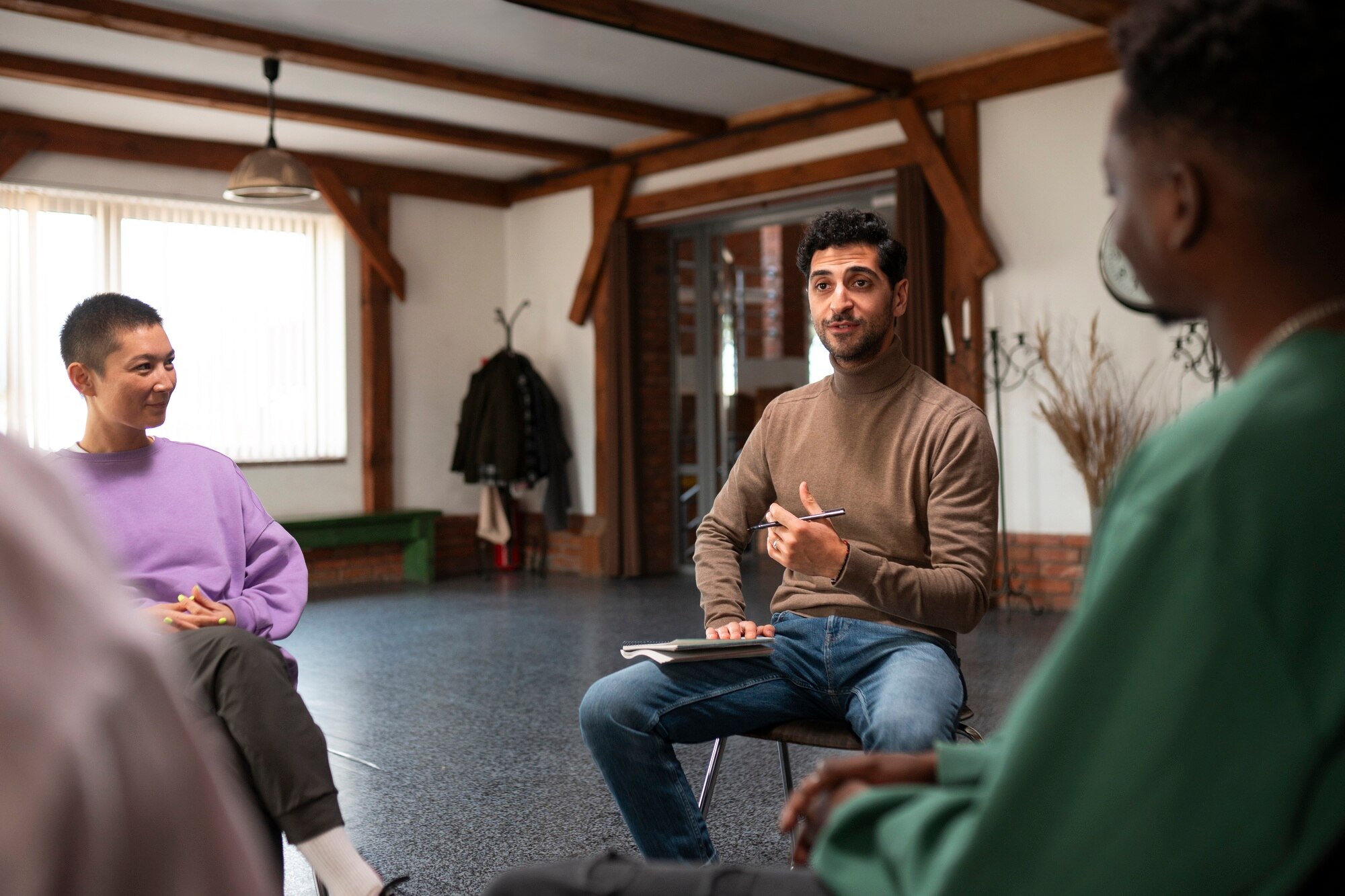
Beyond Therapy: The Power of Non-Clinical Coaching in Addiction Recovery
Forget everything you know about traditional therapy for addiction recovery. If you’ve been struggling in silence, feeling trapped by compulsive behaviors or private addictions, you’re not alone. There’s a path to healing that doesn’t label you or box you in. Non-clinical coaching offers a fresh, empowering approach that speaks to your heart, not your symptoms. Here, emotional healing meets freedom, and self-worth is rebuilt from the ground up. Ready to explore how this can change your life? Let’s begin your journey to reclaiming your power.
Non-Clinical Coaching Explained

Non-clinical coaching is gaining recognition as a powerful modality in addiction recovery. Unlike traditional therapy, it offers a different framework, focusing more on personal empowerment rather than clinical diagnosis.
What Is Non-Clinical Coaching?
Non-clinical coaching involves personalized support to help individuals overcome compulsive behaviors without the constraints of a clinical setting. Instead of diagnosing or treating symptoms, it emphasizes personal growth, self-awareness, and action-oriented strategies.
Coaches work closely with clients to understand their unique challenges and aspirations. They offer powerful tools and techniques to navigate emotional difficulties and enhance personal well-being. The goal is to empower individuals to take control of their lives by providing guidance in a supportive, non-judgmental environment.
In essence, non-clinical coaching is about fostering a deep connection with oneself. By focusing on self-discovery and personal growth, it creates a foundation for lasting change, encouraging clients to explore who they are beyond their addiction. This approach is grounded in real-world experiences and practical solutions, tailored to the individual’s needs.
How It Differs From Therapy
Coaching vs. Therapy can be illustrated by their differing approaches. A key difference lies in the goal: therapy often focuses on healing past wounds, while coaching is future-oriented, aiming to create actionable change.
Aspect | Therapy | Non-Clinical Coaching |
|---|---|---|
Approach | Diagnostic and therapeutic | Empowering and future-focused |
Setting | Clinical environment | Flexible, non-clinical spaces |
Goal | Healing past trauma | Achieving personal goals |
For further insights, you can explore this resource which delves into these differences. Additionally, this article provides an in-depth look at the choice between coaching and therapy.
Ultimately, non-clinical coaching offers a distinct pathway that emphasizes empowerment and self-directed change, making it a viable alternative for many seeking recovery.
Empowering Your Addiction Recovery

Empowerment in addiction recovery is about reclaiming one’s power and autonomy. Through rebuilding self-worth and using strategic tools, individuals can overcome compulsions and navigate their recovery journey more effectively.
Rebuilding Self-Worth
Rebuilding self-worth is crucial for overcoming addiction. It starts with recognizing one’s inherent value and embracing self-compassion. Many individuals struggling with addiction have a damaged sense of self-worth due to shame and guilt.
Acknowledge Strengths: Identify personal strengths and achievements. Celebrate small victories daily to build confidence.
Practice Self-Compassion: Treat yourself with the same kindness you would offer a friend. This shift in perspective fosters healing.
Set Boundaries: Learn to say no and prioritize self-care. This reinforces your value and improves emotional well-being.
By focusing on these steps, individuals can transform their self-perception. The journey to self-worth is personal and requires patience. It lays the foundation for overcoming addiction by replacing self-doubt with self-belief.
Overcoming Compulsions with VK Circle
VK Circle provides a structured pathway to emotional freedom. Through a non-clinical approach, individuals can address the underlying emotional pain driving their compulsions.
Judgment-Free Support: Clients receive support without labels, creating a safe space for honest exploration.
Actionable Tools: Techniques are provided to manage emotions and responses, fostering long-term change.
Community and Connection: Being part of a supportive community helps reinforce positive changes.
Real-world results show significant improvements in clients’ ability to manage compulsive behaviors. This article discusses the impact of non-clinical coaching. VK Circle empowers individuals to regain control over their lives, offering hope and practical solutions for recovery.
The Emotional Healing Process

Emotional healing is pivotal in addiction recovery. Through philosophies like Heal Your Life® and a focus on safety, individuals can achieve emotional liberation and rebuild their lives.
Heal Your Life® Philosophy
The Heal Your Life® philosophy is rooted in self-love and personal empowerment. It encourages individuals to let go of past hurts and embrace their true potential.
Affirmations: Positive statements replace negative beliefs, fostering a healthier mindset.
Visualization: Imagining a desired future helps manifest change and motivates action.
Self-Reflection: Regular introspection leads to insights about personal patterns and growth opportunities.
These techniques guide individuals through emotional healing, offering a structured yet flexible approach to personal transformation. By nurturing self-love and acceptance, the Heal Your Life® philosophy provides a solid foundation for recovery.
Emotional Liberation and Safety 🌟
Achieving emotional liberation requires a safe environment where individuals feel supported and understood. This process involves:
Creating Safe Spaces: Ensuring a non-judgmental, empathetic environment where clients feel comfortable expressing themselves.
Encouraging Vulnerability: Allowing individuals to open up about their struggles without fear of judgment.
Promoting Trust: Building a trustworthy relationship between coaches and clients to facilitate honest communication.
This study highlights the importance of safety and trust in the recovery process. Emotional liberation is about freeing oneself from the chains of past traumas and compulsions, leading to a more fulfilling life. 🌟
By embracing these principles, individuals can embark on a path toward emotional healing and long-term recovery.



